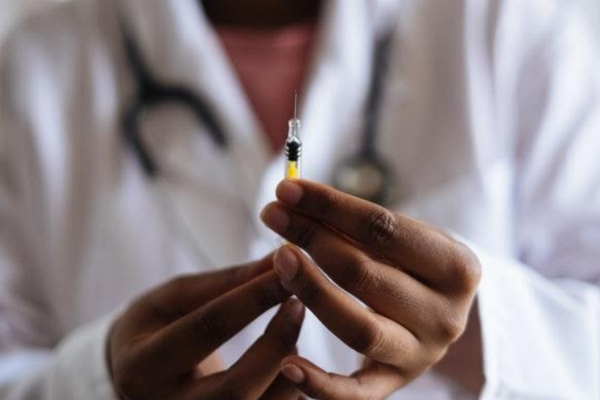 EmblemHealth, one of the nation’s largest nonprofit health insurers, today released results of a new study that found that nearly half of New Yorkers will be more likely to get a flu vaccination this fall due to the ongoing coronavirus pandemic. EmblemHealth commissioned the research as part of their ongoing efforts to address the concerns raised by the CDC of a possible “twindemic” of COVID-19 and the flu this fall.
EmblemHealth, one of the nation’s largest nonprofit health insurers, today released results of a new study that found that nearly half of New Yorkers will be more likely to get a flu vaccination this fall due to the ongoing coronavirus pandemic. EmblemHealth commissioned the research as part of their ongoing efforts to address the concerns raised by the CDC of a possible “twindemic” of COVID-19 and the flu this fall.
“COVID-19 has triggered a lot of uncertainty and anxiety for what the months ahead might hold,” said Richard Dal Col, MD, Chief Medical Officer of EmblemHealth. “The flu vaccination can help give New Yorkers peace of mind by reducing their likelihood of contracting the flu, which has similar symptoms to COVID-19 and can weaken their overall immune response to COVID-19 and other illnesses.”
The survey, conducted by research firm Dynata, polled 1,005 adults across New York’s five boroughs to understand the impact of COVID-19 on receiving the flu vaccination and other routine care. While nearly half (47%) of respondents reported that COVID-19 has made them more likely to get the flu vaccination this year, others remain concerned about the vaccination’s effectiveness and side effects, signaling an opportunity for health care organizations to educate and engage the public.
The survey, conducted by research firm Dynata, polled 1,005 adults across New York’s five boroughs to understand the impact of COVID-19 on receiving the flu vaccination and other routine care. While nearly half (47%) of respondents reported that COVID-19 has made them more likely to get the flu vaccination this year, others remain concerned about the vaccination’s effectiveness and side effects, signaling an opportunity for health care organizations to educate and engage the public. Among key findings from the survey:
Seniors were significantly more likely to have received the flu vaccination in the past compared to other age groups, and plan to continue this year. Ninety-eight percent of seniors who received a flu vaccination in the past three years responded they are just as likely or more likely to get one this year, whether through a home health aide, with their primary care physician, at a pharmacy, or in another setting.
More than half of male respondents (53%) reported that they are more likely to get the flu vaccination this year, compared to 42% of females. With global data showing that males are dying from COVID-19 at a higher rate than females, 59% of males planning to get a flu vaccination this year stated that COVID-19 had made it important for them to remain as healthy as possible.
More than half of male respondents (53%) reported that they are more likely to get the flu vaccination this year, compared to 42% of females. With global data showing that males are dying from COVID-19 at a higher rate than females, 59% of males planning to get a flu vaccination this year stated that COVID-19 had made it important for them to remain as healthy as possible.
Among New Yorkers who had not received the flu vaccination in the past three years, 80% said they still do not plan to get the flu vaccination this year. Effectiveness was listed as the top reason to continue foregoing the flu vaccination this year.
Disparities in flu vaccination rates mirror those brought to light by the COVID-19 pandemic, with Manhattan having the highest number of respondents who had received the flu vaccination at least once in the past three years (84%), compared to 77% in Staten Island, 73% in Queens, 72% in Brooklyn and 68% in the Bronx.
Less than half (41%) of Black/African American respondents reported having received the flu vaccination every year for the past three years compared to 59% of Hispanic/Latinx respondents and 61% of White/Caucasian respondents, with many Black/African American respondents pointing to concerns about effectiveness and safety.
Disparities in flu vaccination rates mirror those brought to light by the COVID-19 pandemic, with Manhattan having the highest number of respondents who had received the flu vaccination at least once in the past three years (84%), compared to 77% in Staten Island, 73% in Queens, 72% in Brooklyn and 68% in the Bronx.
Less than half (41%) of Black/African American respondents reported having received the flu vaccination every year for the past three years compared to 59% of Hispanic/Latinx respondents and 61% of White/Caucasian respondents, with many Black/African American respondents pointing to concerns about effectiveness and safety.
“The COVID-19 pandemic has shone a spotlight on health disparities across New York and our nation,” said Dal Col. “As we look forward, many of the communities that were devastated by the COVID-19 pandemic earlier this year are now facing an impending twindemic. EmblemHealth is working with our community and provider partners to provide critical education, outreach and access to New Yorkers this flu season. Within our family of companies, our medical practices are already seeing demand for flu vaccinations significantly increase compared to the same time period last year.”
EmblemHealth’s family of companies includes AdvantageCare Physicians (ACPNY), a multispecialty medical practice with 40 locations across New York City’s five boroughs and Long Island. Earlier this year, ACPNY announced a partnership with New York State and the City of New York to provide critical COVID-19 testing services to underserved communities. ACPNY and BronxDocs, EmblemHealth’s community practice partner in the Bronx, are currently offering flu vaccinations at all of their locations.
EmblemHealth is one of the nation’s largest nonprofit health insurers, with 3.1 million members and an 80-year legacy of serving New York’s communities. The company offers a full range of commercial and government-sponsored health plans to employers, individuals and families, as well as convenient community resources. As a market leader in value-based care, EmblemHealth partners with top doctors and hospitals to deliver quality, affordable care. For more information, visit emblemhealth.com.
Become a Harlem Insider!
By submitting this form, you are consenting to receive marketing emails from: . You can revoke your consent to receive emails at any time by using the SafeUnsubscribe® link, found at the bottom of every email. Emails are serviced by Constant Contact








